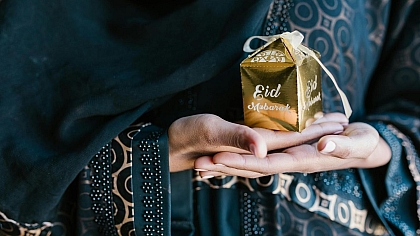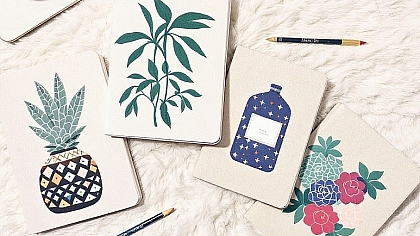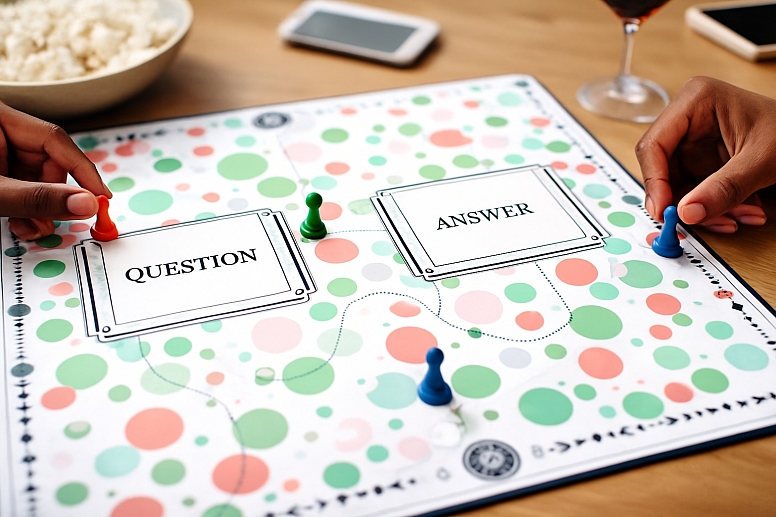
Playing For Presence: Gaming For The Soul
Think about the last time you played a game with friends or family. Maybe it was a board game, card game, table-top adventure or quick round of Chess on your phone. There were probably laughs, some friendly teasing, a couple of arguments, especially if you were playing Monopoly, and that spark of adrenaline that comes with trying to win!
Winning feels good. Losing, not so much. Both are part of a pattern we rarely question, deeply rooted in our subconscious. The idea that ‘play’ must involve victory. That someone has to come out on top, which by definition means someone has to ‘lose’. Where did this idea come from?
It’s built into how we learn, how we work, and how we interact. We grow up collecting points, grades, trophies, achievements, and more recently, even ‘likes’. Our brains are wired for it. That constant urge to do better, be faster, be smarter, be more popular, get more likes. To ultimately win.
But what if ‘play’ could be something else? What if the point wasn’t to ‘conquer’ or ‘beat’ anyone, but to connect? To notice, to be present in the same space with other people, without the pressure to ‘beat’ them, or the fear of losing.
That simple question opens a space to a different kind of experience. One that feels softer, but also more real, authentic and connected. Calm and reassuring.
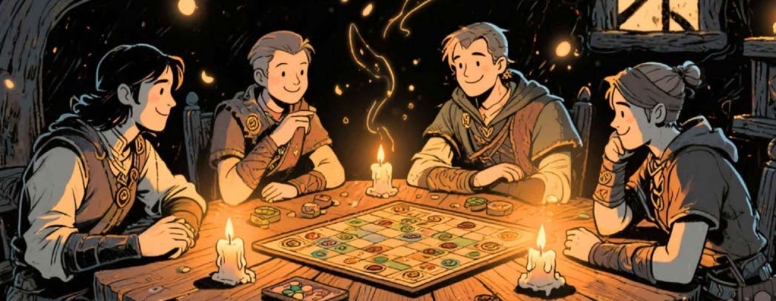
The Hidden Programming of Competition
Competition is one of humanity’s oldest motivators. It has shaped everything from our survival instincts to our social structures. It can drive growth, creativity, and excellence. But it seems to have sneaked into places it doesn’t necessarily belong. Like Game Night with friends or family.
You’ve probably seen it happen. The rules are simple, the stakes are low, it’s supposed to be a bit of fun, just a game, but suddenly someone’s getting way too serious about the score. Jacbo is stealing money from the bank again, and Judith’s just moved an extra space to avoid going to ‘jail’, hoping no one notices. Another person goes quiet after a few rounds, wishing they’d never agreed to play... Tension builds, and the laughter fades.
We call it ‘friendly competition,’ but for many, it awakens something deeper. A part of us that’s been trained to measure our worth by performance. It’s mostly subconscious. You can feel your body tighten a little when you’re losing, or your team is on the back foot. Just like you feel the relief when you’re winning, and you managed to build a hotel in Mayfair!
It’s not wrong. It’s human. But it can also be challenging.
That’s why mindful play matters. It invites us to notice what’s happening underneath game mechanics. The subtle emotions. The automatic reactions. The quiet voice that says, ‘You should be doing better,’ or ‘OMG, Judith cannot win again!’
When we see that programming for what it is, we can choose to play differently.
This Isn’t About Judgement
Let’s be clear, I love competitive games. I’ve spent hours fully enjoying chaotic rounds of D&D, planning my next epic play in Magic: The Gathering, and cheering when I finally pull off a risky hand in Poker. Those moments are full of energy, creativity, and joy, and they 100% should be.
Competition can bring out amazing things in people. It teaches focus, resilience, and teamwork. It creates memorable stories and shared excitement. There’s nothing wrong with it.
The point here isn’t to dismiss competition. It’s to questioning how deeply it’s woven into everything we do. To ask if it always serves us, and if it doesn’t, what can we do about it?
We are so used to living in systems built around ranking, measuring, and comparing that even our leisure time follows the same pattern. When do we ‘actually’ relax? What happens when we step outside that loop for a while?
Are there games that are still engaging, still fun, but don’t require a winner? Absolutely.
Co-operative board games, for example, let players work together toward a common goal. Storytelling games focus on creativity instead of score. Free-form role-playing sessions can become adventures of shared imagination with no fixed outcome at all. And then there are mindful games. The ones that invite stillness, reflection, or gentle exploration. They don’t replace competitive play; they complement it. They remind us that play can take many shapes. It doesn’t have to fit inside this neatly formed box we are all accustomed to.
Sometimes we need the thrill of the chase. Other times, we need the calm of connection. Both have a place at the same game table.
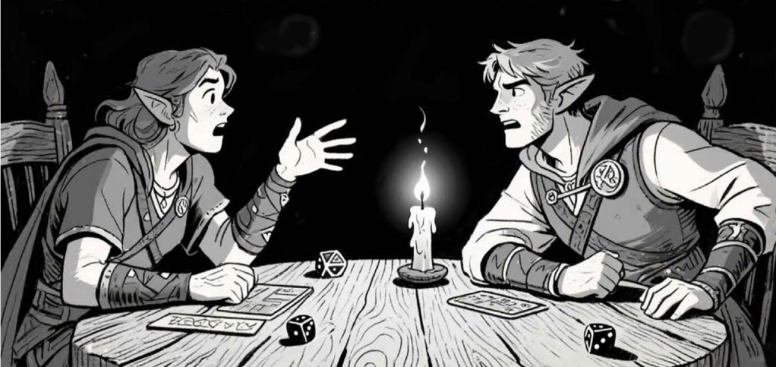
What It Means to Play Without Winning
Imagine sitting around a table with friends. No one’s trying to win. No one’s keeping score. There’s still laughter, still fun, but it feels… open, safe and free.
Instead of focusing on the outcome, everyone focuses on the moment. Its value isn’t measured by what you achieve, but by the intention behind it, the curiosity, the joy, the willingness to be fully engaged. In this space, every action, every choice, even every stumble, becomes rich with purpose simply because you’re here, now, fully participating.
In this kind of space, competition gives way to connection. You’re no longer reacting. You’re experiencing. You start to notice small details, the sound of the dice rolling, the rhythm of your breathing, the way someone’s eyes light up when they share their story.
It’s not about performance anymore. It’s about presence.
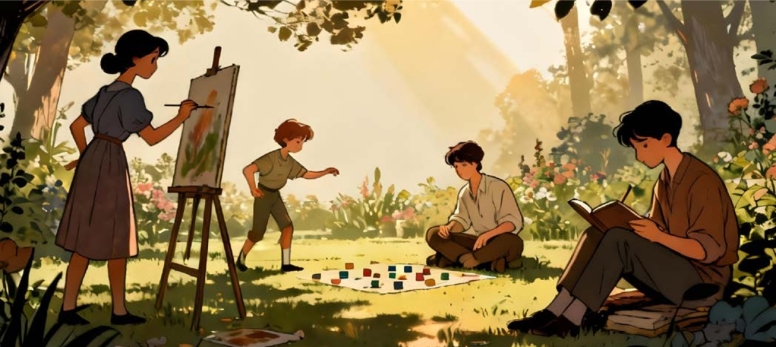
Why This Matters More Than Ever Now
We live in a culture that glorifies competition. Every app, every metric, every job seems to reinforce it. But this constant comparison erodes the very thing that makes play healing - freedom.
When you remove the element of competition, you reclaim that freedom. You can explore without pressure or expectation. You can make mistakes without shame. You can exist in a shared space where every outcome is valid and the decisions you make stand without judgment.
This kind of play isn’t just good for relaxation. It’s good for mental health. It fosters self-awareness, emotional intelligence, and compassion. It gives you space to reflect, to express, to connect in ways that screens and scoreboards never can.
And when you play mindfully, something beautiful happens. You begin to notice patterns not just in the game, but in yourself.
How often do you rush to take your turn? Why will you be so angry if Judith wins? Do you speak first, or wait to see what others do? Do you feel uncomfortable if you lose? Do you seek control, or prefer to follow?
These tiny insights become mirrors. Each round, each moment of play, shows you something about your inner landscape, something that’s been bubbling just below the surface but too scared to be set free.
It’s not always comfortable, but it’s always valuable.
The Mindful Game Table
Mindful play isn’t a new idea, but it’s been quietly hiding in plain sight. Ancient cultures used games and rituals not to compete, but to reflect. Storytelling circles, symbolic movement, and shared silence were all forms of play meant to strengthen awareness and community spirit.
Today, most of our games are fast, rigidly structured, and filled with goals. But there’s a growing hunger for something different. Something slower and less abrupt.
Picture a game night where the goal isn’t to outwit your friends or ‘win’, but to get to know them, and yourself, on a deeper level. Where curiosity replaces strategy. Where silence isn’t awkward but welcome. Where vulnerability isn’t mocked, but embraced.
That shift changes everything. It softens defences. It encourages empathy. It reminds us that play can be sacred, not in a religious sense, but in the way it brings us fully into the present, sharing precious moments with the people around us. Oh, what I’d give to play just one more game of Chess with my father!
Rediscovering Play as Exploration
Somewhere along the way, we forgot how to really play. Not just to pass the time, but to explore. To imagine. To reconnect with that childlike curiosity that once made everything feel magical. Where a few simple cardboard boxes would become your mighty castle, and your bed sheet a cloak of invulnerability!
Mindful play brings that back. It invites you to wander through your own thoughts and feelings with the same curiosity you’d bring to exploring a fantasy world as a child.
The difference is, this adventure is internal. The monsters you face are your own fears and distractions. The treasure you find is wisdom and awareness. Every moment of play becomes a small quest for presence, peace and positivity.

The Joy of Non-Competitiveness
We’re so used to constant motion, chatter, and competition that slowing down feels almost unnatural. Without the pressure to win or perform, something rare begins to emerge: an unspoken connection. Freed from comparison, people relax, notice each other more, and share genuine moments. In that quiet, attentive space, small gestures, smiles, and stories carry more weight, and the bond between players grows in ways that words alone can’t capture.
You feel it in the rhythm of the room. The shared breath. The subtle trust that builds when no one’s trying to outshine anyone else. It’s in those moments that true connection grows. It’s quiet, but very powerful. It’s the kind of feeling that lingers long after the game ends and everyone leaves. It’s a sense of accomplishment that makes being top of the leaderboard feel, well, a bit insignificant.
You walk away lighter, more open, more aware of the people around you, reminded that presence, not performance, is what made the night so enjoyable.
The next time you plan a casual game night, try adding a short ‘Mindful Game’ to the list, something that doesn’t demand winners or losers. You could use cards with prompts, or roll a dice to guide simple actions. These actions might be sharing a short story, reflecting on a question, doodling something, or offering a kind word to another player. There’s no winning; let curiosity, presence, and connection be the only goals.
You’ll be surprised how meaningful it feels to play with no fixed outcome in mind. How alive each turn becomes when you’re not rushing to the end. Play becomes what it always should be: a space for discovery, not domination. For creativity, not reward. To express and be grateful for the simple fact that you are.
The Quiet Revolution of Mindful Play
Mindful play isn’t about doing nothing. It’s about doing ‘something’ with awareness. It’s about reclaiming the joy of simply being with people, fully present, without agenda.
In a world that constantly asks us to prove ourselves, achieve, and compete, choosing to play without those pressures is quietly liberating. It’s a gentle reminder that joy doesn’t have to be earned. That connection doesn’t need to be scored. That the greatest adventures might not be about where you go, but how you feel while you’re getting there.
There’s a shift coming, I feel it in the waters, I sense it in the air and I’m super excited to see where it leads!

Your SoulQuest Awaits
Imagine this: a quiet table, a few close friends, or new ones. Maybe some soft music in the background. Four player tokens rest in the corners of a board that feels a little like a map and a little like a meditation.
You roll a single D6. The dice clicks against the table, then softly settles. You move your token, one circle at a time, in any direction that feels right. There’s no set route to follow. No finish line waiting. Just open space and freedom to explore.
When you stop, you notice the colour beneath your piece. It calls to read a card. Sometimes it’s a ‘Quest Card’, inviting you to take action, a small act that begins the Mindfulness journey. Other times it’s a ‘Reflection Card’, guiding you inward with a question or thoughtful insight.
As the game unfolds, the room lightens, and the energy rises. Smiles are lovingly shared, and stories become genuine connections. A space for truth, honesty and acceptance builds. There’s a warmth that radiates between each and every turn, something far more satisfying than winning is being born.
You begin to realise there’s no competition here. No pressure. Just a genuine connection. Every turn becomes a new way of being present. Each question is a glimpse into the soul of the player. Every dice roll, a step into awareness.
No one loses. Everyone wins...see, there is a winner after all! It’s you!
So roll a die. Pick a card and ask a question. Let the moment unfold.
If you’d like to play SoulQuest or learn more, please click here.
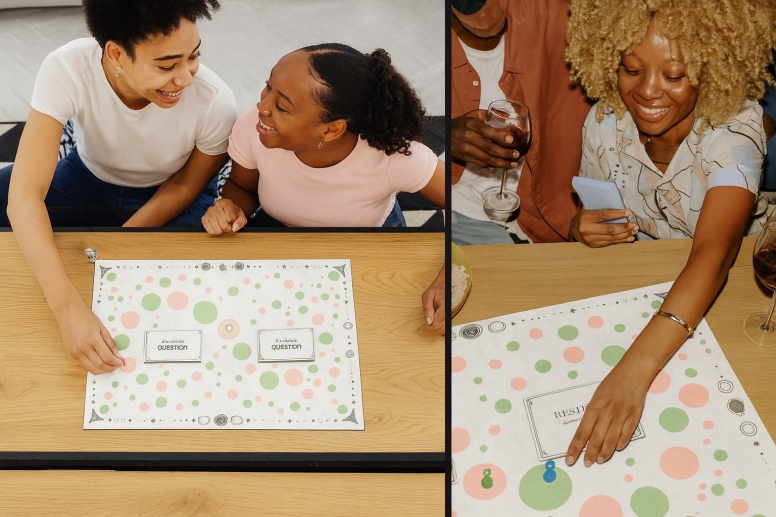
A mindful game like this also makes a beautiful DIY gift. Creating it by hand infuses every card, colour, and token with intention and care—something no store-bought item can replicate. When you craft a game for someone you love, you’re not just giving them an activity; you’re offering them presence, connection, and moments that unfold naturally every time they play. It becomes a gift of experience, reflection, and shared joy—one that continues to give long after the box is opened.








